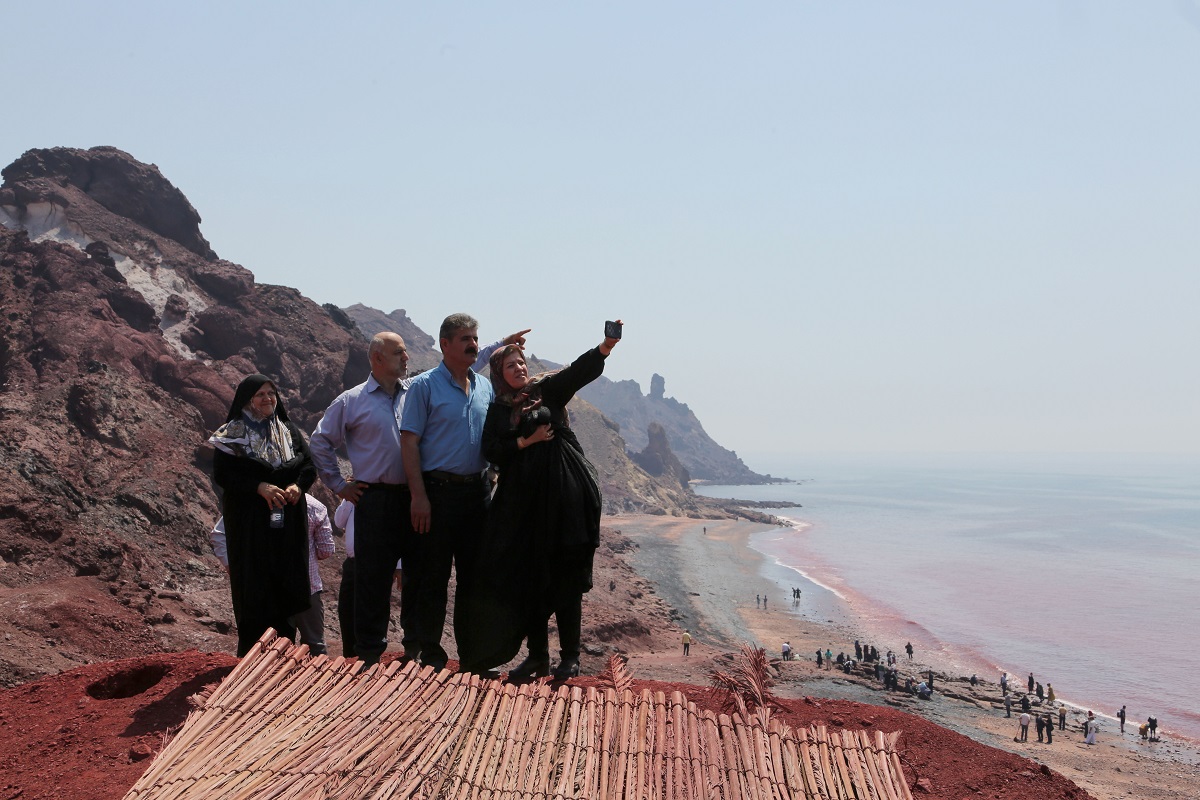US prepares to withdraw troops from Chad and Niger
The US is preparing to negotiate with the military leadership in Niger about the "organized and responsible withdrawal" of its troops from the country.
The Foreign Office in London had faced a dilemma over the past few days, acutely aware that if it seized the Iranian oil ship, as requested by the US, it risked antagonising Tehran, which is desperate to increase its oil exports.

In this file photo taken on April 29, 2019 Visitors take a selfie picture on the Hormuz Island in the Gulf Strait of Hormuz, off the Iranian port city of Bandar Abbas. (ATTA KENARE / AFP)
The choppy sea off Gibraltar, paradoxically enough, symbolised the war of nerves between Iran and the West on Thursday when Britain’s Royal Marines seized an Iranian supertanker that was suspected of transporting oil to Syria.
Tehran’s escalating tensions with the US have now extended to the UK. The prickly issue is the agreement with the Western powers, signed by Barack Obama and binned by Donald Trump, which aims at halting Iran’s nuclear programme. A detachment of nearly 30 British troops working with the Gibraltar police intercepted the vessel, believed to be carrying 2 million barrels of oil, in a dramatic manoeuvre that Spain claimed had been conducted at the request of the US.
Well and truly has it turned out to be a latter-day Concert of Europe and the US against Iran. This time, Tehran has precipitated the maritime crisis and then resorted to a bout of robust diplomacy. It thus comes about that the government of President Hassan Rouhani is said to have summoned Britain’s ambassador to its foreign ministry for a verbal demarche, specifically to explain what it described as an “illegal seizure”.
Advertisement
The seizure has been described by the UK as an attempt to enforce the European Union’s sanctions regime against Bashar al-Assad’s Syria. The plot thickens with the United States of America and the United Kingdom now actively ranged against Iran, recalling the Anglo-US invasion of Iraq in March 2003. But whereas the WMDs in Iraq did not exist, the evidence in Iran on matters nuclear is arguably rather more substantive.
Thursday’s action comes amidst heightened tensions between the US and Iran. The latter has been accused of sabotaging oil tankers in the Strait of Hormuz, said to be an expression of brinkmanship that is designed to show the US that there is an economic cost to the Trump administration’s decision to pull out of the 2015 nuclear deal and impose economic sanctions.
The British action on the high seas has readily been welcomed by the US, whose National Security Adviser, John Bolton, has let it be known that “America and our allies will continue to prevent regimes in Tehran and Damascus from profiting off this illicit trade”. Further afield, therefore, the seizure of the Grace 1 supertanker emits a stern signal to Syria no less.
The Foreign Office in London had faced a dilemma over the past few days, acutely aware that if it seized the Iranian oil ship, as requested by the US, it risked antagonising Tehran, which is desperate to increase its oil exports. Iran is now reportedly exporting as little 200,000 barrels per day, and is anxious to ensure that the volume is closer to 600,000 barrels to keep its economy afloat.
Under the EU sanctions regime, however, Britain has a legal and moral duty to impound any ship that sails towards Syria in violation of the crippling economic curbs. The vessel was impounded after Iran decided to enter the waters off the Gibraltar coast with communications transponders. Tehran’s misadventure in the sea has intensified the crisis.
Advertisement